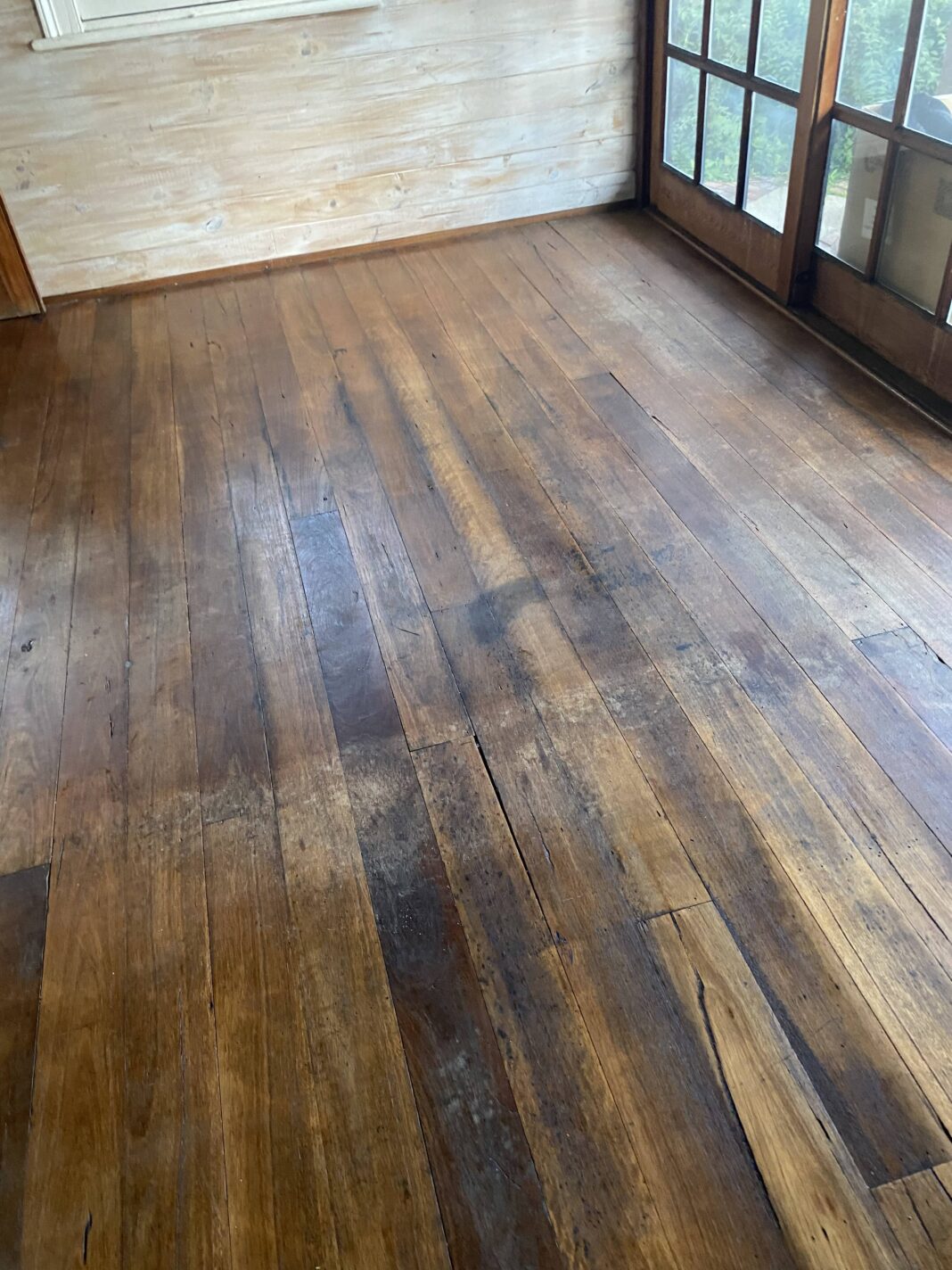Sanding vs Replacing Timber Floors? 100-Year-Old Blackbutt Restored to Stunning Finish
If you’ve ever faced the decision of sanding vs replacing timber floors, you’ll know it’s not always a straightforward choice. Especially in older homes, the sentimental and historical value of the floor itself plays a big role. In a recent project, we had the pleasure of working on a 100-year-old Blackbutt timber floor in Canberra. While replacement was an option, we opted for sanding and polishing—and the results were nothing short of stunning.
Background of the Project
100-Year-Old Blackbutt Timber in Canberra
Blackbutt is one of Australia’s most durable and attractive hardwoods, and in this project, it had weathered a century of life. The home, full of character and charm, had timber floors that had lost their shine but not their spirit. The original Blackbutt boards were still structurally sound, making them excellent candidates for restoration rather than replacement.
The Big Question: Sand or Replace?
Why We Chose Sanding Over Replacement
When evaluating sanding vs replacing timber floors, cost, condition, and character all matter. Replacing Blackbutt timber would have been not only expensive but also would have stripped away the home’s original personality. After a thorough inspection, we knew that a professional sanding and polishing job could bring these floors back to life without the need for new timber.
The Cost-Effective Advantage
Let’s be real—timber is expensive, and Blackbutt even more so. By choosing sanding, we helped our client save thousands of dollars while preserving the authentic feel of their heritage home. Plus, sanding has a far smaller environmental footprint than full replacement.
Challenges of Restoring Century-Old Timber Floors
Surface Damage and Wear
Over 100 years, these floors had seen it all—scratches, stains, faded varnish, and general wear. But most of this damage was surface-level. A deep sanding removed years of buildup, revealing the rich golden tones of the Blackbutt timber underneath.
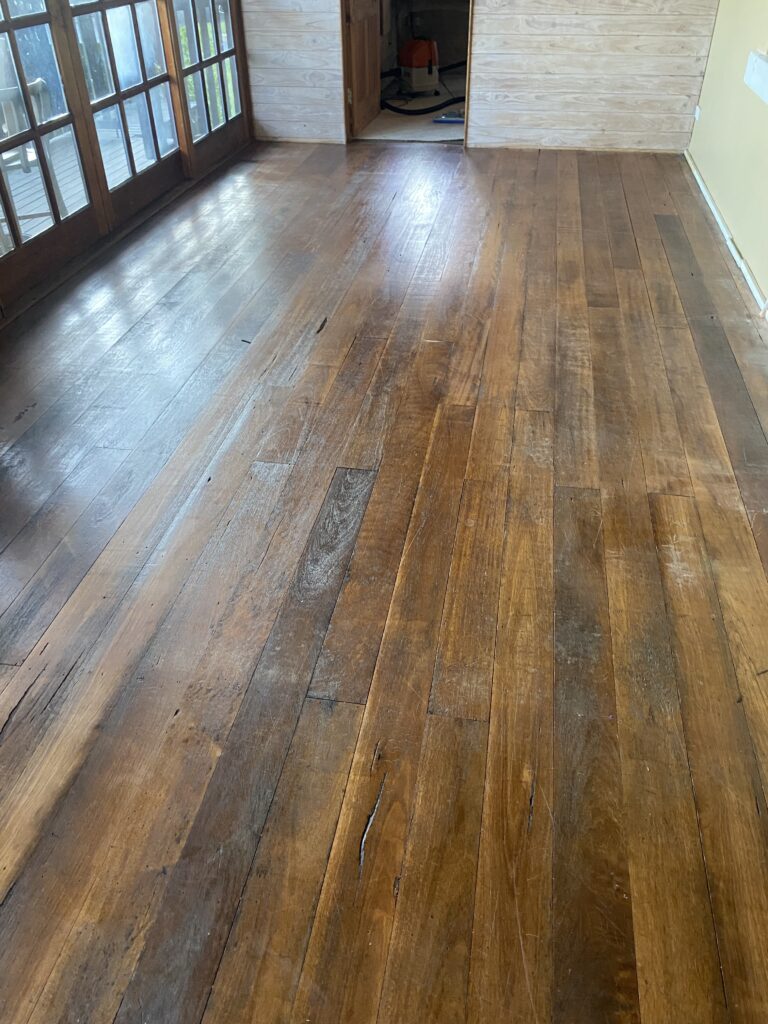
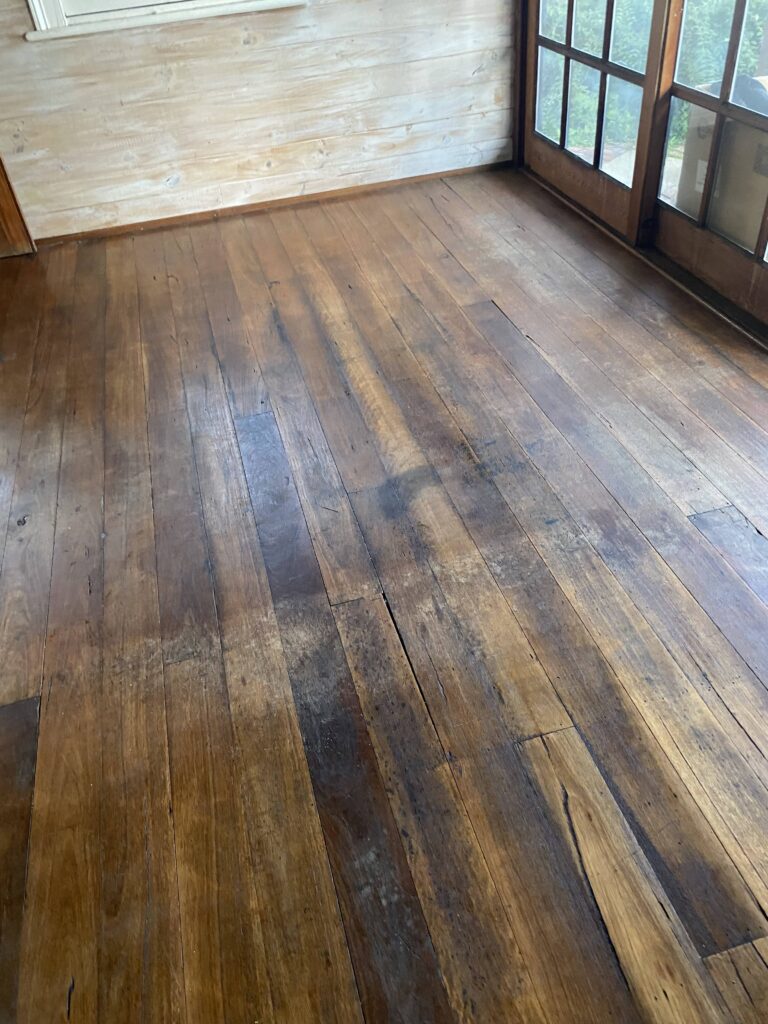
Preserving the Character of Blackbutt
Unlike replacing with new boards, sanding retains the original grain, knots, and marks that give timber its story. We made sure to polish it in a way that highlighted these features, adding value and warmth to the space.
The Sanding and Polishing Process
Step-by-Step Breakdown
- Initial Assessment – Checked for structural integrity and moisture levels.
- Rough Sanding – Removed old coatings and leveled the boards.
- Fine Sanding – Smoothed the surface with finer grits.
- Polishing – Applied multiple coats of high-grade polyurethane finish.
Products and Techniques Used
We used commercial-grade floor sanders and eco-friendly water-based finishes that dry fast and enhance natural colour without overpowering the timber. This choice also reduces indoor air pollution, making the space safe and breathable post-renovation.
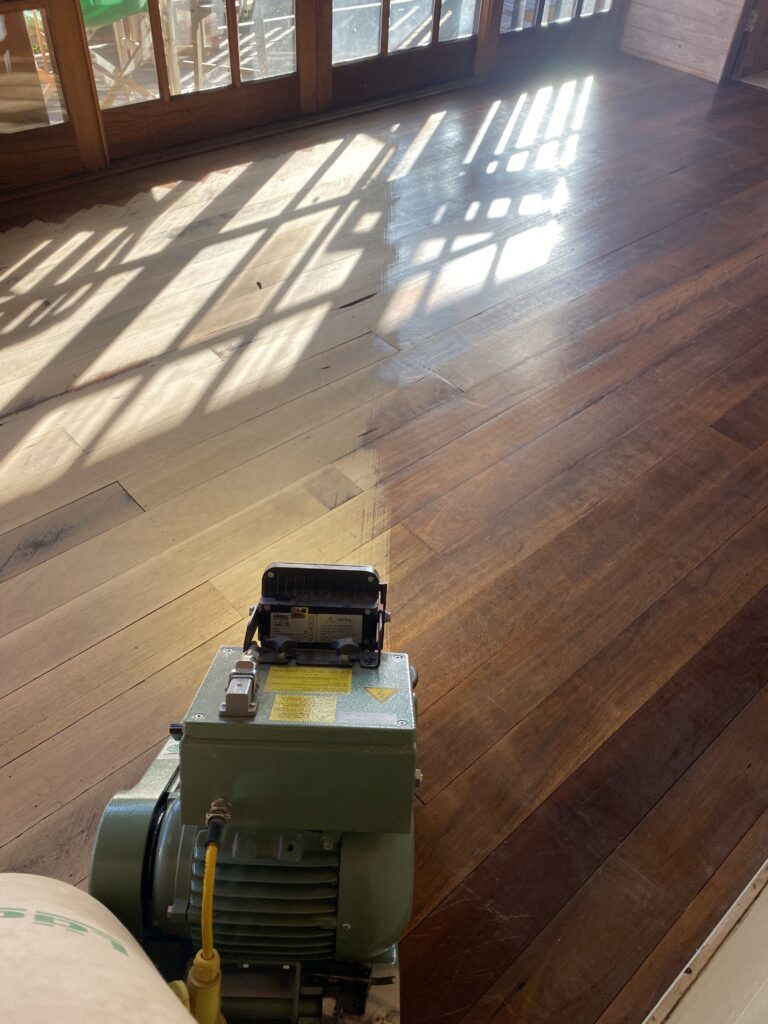
Results: Bringing Blackbutt Back to Life
Before and After Overview
The transformation was incredible. What was once a dull, tired floor now shines with natural brilliance. The original grains popped through the finish, and the entire room gained warmth and character.
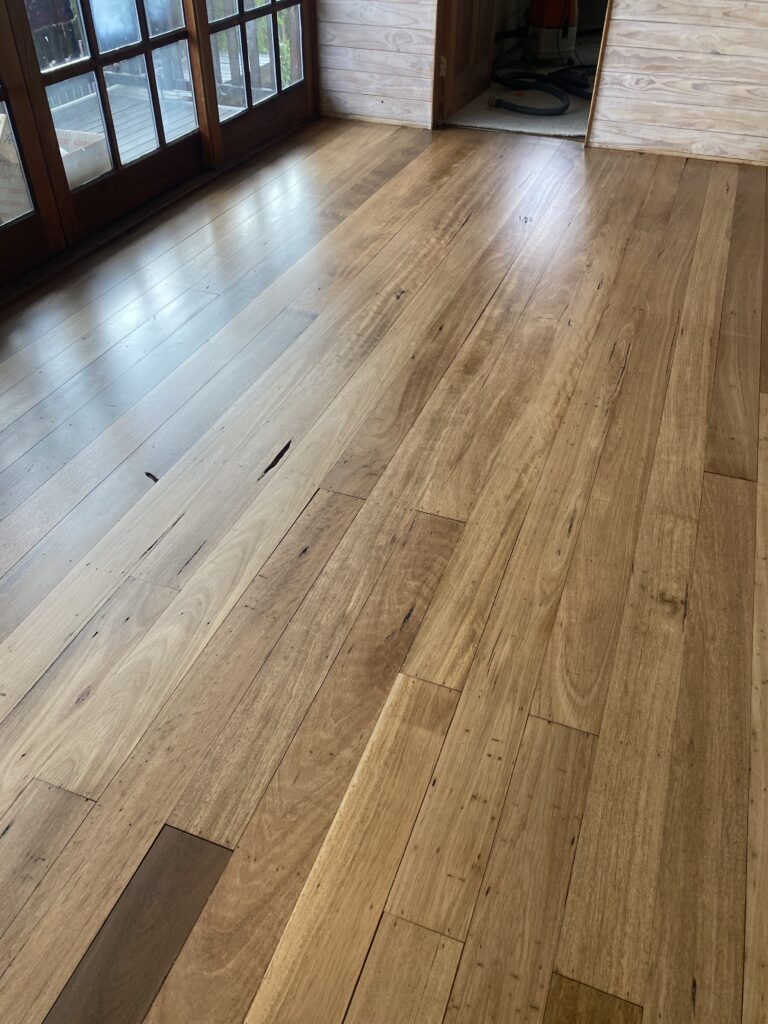
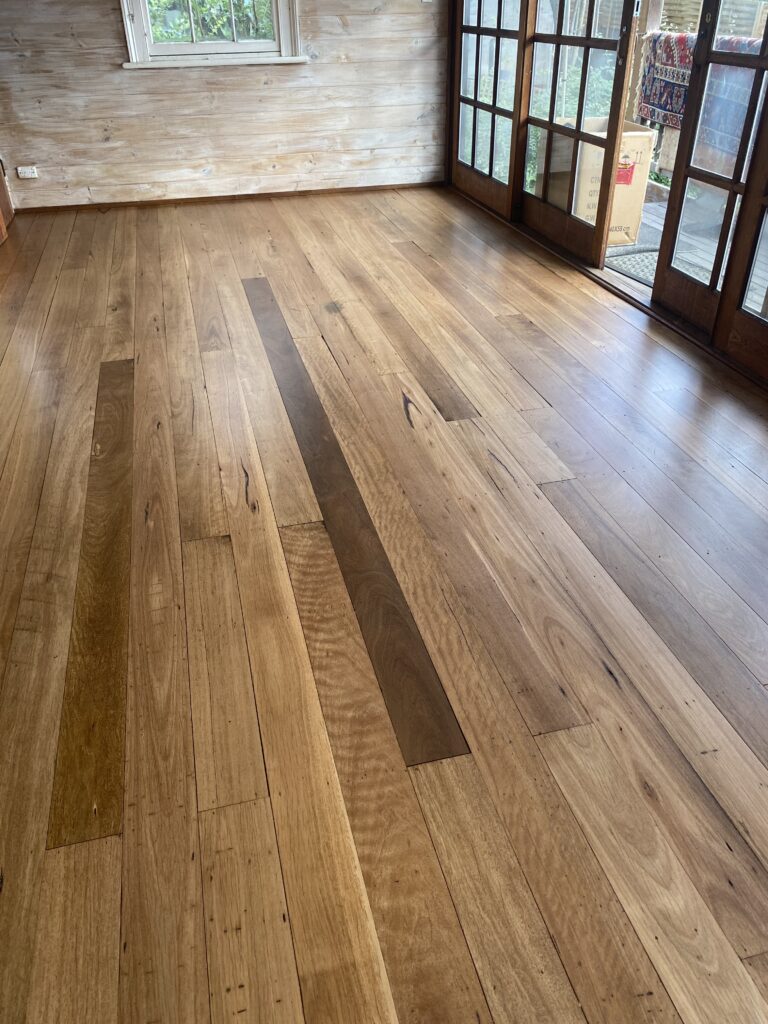
Client Satisfaction and Visual Transformation
Our client was thrilled, noting how the floors had become the highlight of the home. We’ve since had multiple referrals based on the success of this project—which speaks volumes about the visual impact of choosing sanding over replacing timber floors.
Why We Prioritize Restoration Over Replacement
Timber is Expensive – Restoration Matters
We understand that every dollar counts, and new timber—especially hardwood like Blackbutt—can be prohibitively expensive. That’s why our goal is always to restore before replacing, as long as it’s safe and feasible.
Our Sustainability Commitment
Restoration not only saves money—it reduces waste. We’re proud to support more sustainable flooring solutions by extending the life of existing timber and minimizing the environmental cost of new material production.


